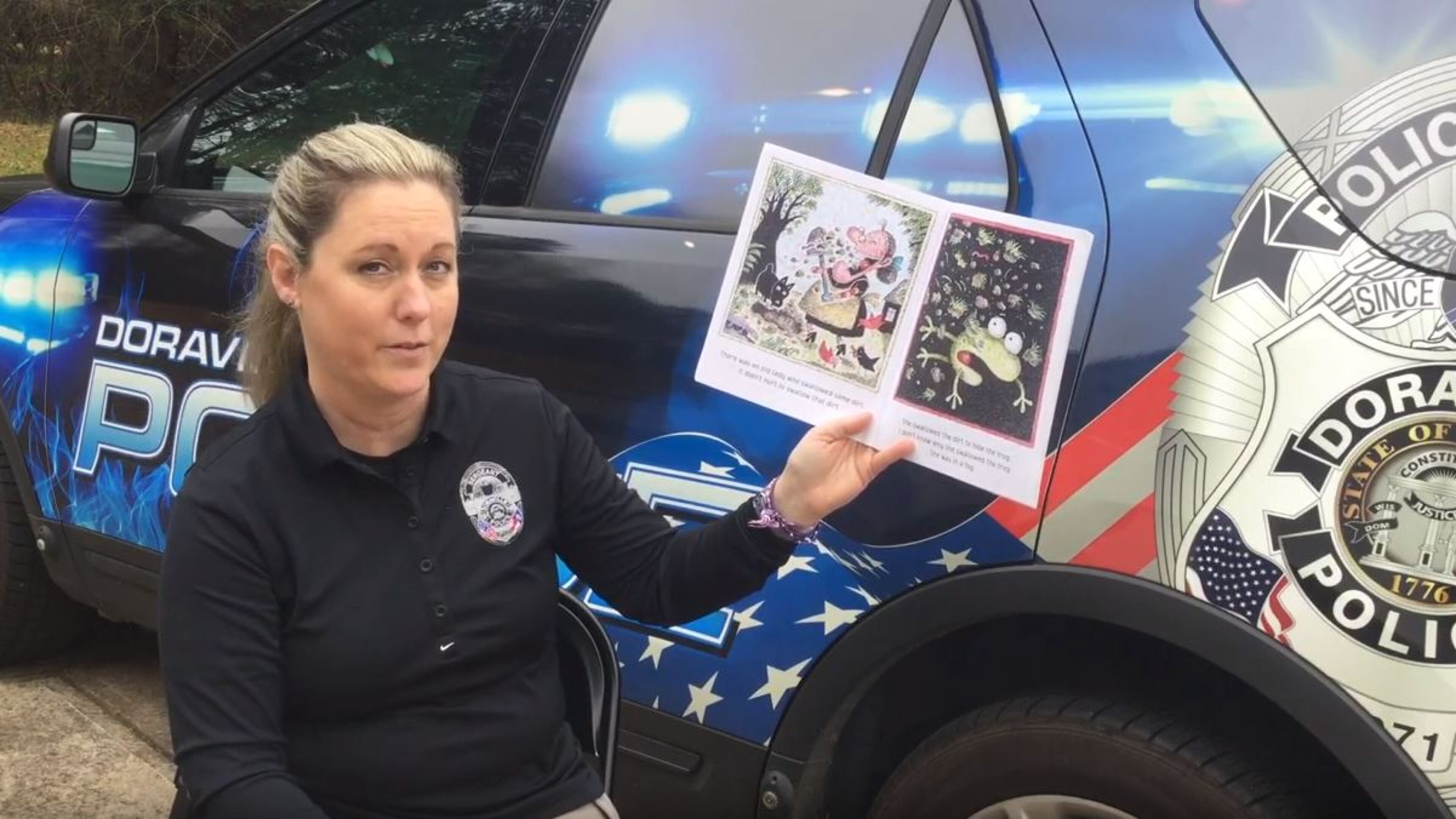Schools are closed, but Doraville Police sergeant keeps reading

When metro Atlanta school districts decided to shutter school buildings and take lessons online, Kari Lopez wondered what she would do with her Tuesdays.
Since the school year began, Lopez, a sergeant with the Doraville Police Department, would visit with second grade students at Hightower and Oakcliff elementary schools and read to them. The interaction aided the students with their comprehension, and helped to break down the stigma associated with police by children from communities of color.
That work could not end, Lopez said.
Seated in a chair, a Doraville Police Department SUV parked behind her, Lopez recorded her weekly reading lesson for the classes to see.
"I didn't want to skip our routine," she said at the start of her reading video on March 17. "I'm thinking about all of you guys … that we're going to get through this."
For the past three Tuesdays, Lopez has pulled out a book and continued reading to her classes, hoping to add a bit or normalcy to their routines while they learn from home, away from their classmates and teachers. The DeKalb County School District shut its school buildings on March 12, responding to a request by Gov. Bryan Kemp to help curb the spread of COVID-19, which has killed more than 100 people so far in the state. The weekly reading helps continue a mission Lopez began about a decade ago when she walked into a school for her first reading assignment and noticed she got some strange glances from students.
Relationships between law enforcement and communities of color already have been tense. In the Buford Highway Corridor, where the majority of residents speak English as a second language, if at all, those fears have been heightened in recent years as increased enforcement has led to more deportations.
“I wanted them to know I wasn’t there to take them to jail or … send them to another country,” she said. “Every time I went back, I noticed it got better, to the point where they were happy to see me.”
A report by advocacy groups the Advancement Project and the Alliance for Educational Justice showed that the push to an increased police presence in schools since Columbine in 1999 resulted in more school discipline at a disproportionate rate for students of color, and that the approach had done little to make them safer.
The interaction has been particularly important to the students at Oakcliff Elementary School, said principal Delores Paschall, who said most of the children from her school come from backgrounds where they are not often exposed to different individuals and lifestyles.
“It’s very important for us to bring in people from various walks of life,” she said, adding that students have visited more with professionals from different careers since the school was STEM certified several years ago. “With the police department, they come on a regular basis because when you get there, you fall in love with the kids.”
Lopez usually spends about 90 minutes reading to several classrooms in the school, which goes up to fifth grade. Counselor Denise Quintana said Lopez initially came to the school to speak with students about cyberbullying, a growing trend as social media’s influence continues to grow that has affected young students and even led to a rise in child suicides. The students, though, were genuinely interested in Lopez and her own story.
“They wanted to know more about her,” Quintana said. “When we see police officers, we have an idea of what they do. Questions were more geared on who she was, her … journey as an individual.”
The first week school buildings were shut down, the Doraville Police Department tagged Oakcliff Elementary School in a video on its Facebook page. Lopez opened the video saying she was thinking about the students she typically would read to, as well as other students across Georgia.
“Right now, we all feel alone,” said Quintana, the Oakcliff Elementary School counselor. “I truly realize my definition of home. That includes Oakcliff. I miss a lot of that. When she sent that video, it brought me to tears. She’s part of my home. And the students see her as someone they miss.
“We’re not alone, we’re all in this together.”



